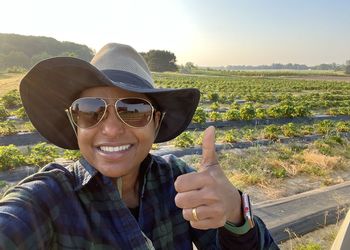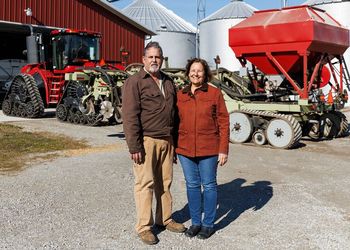Feature: How MSU Helps Communities Prevent Youth Violence

In the aftermath of the Columbine shootings, MSU Extension's youth violence prevention programs take on a new visibility and importance.
In June, a group of young people in Sault Sainte Marie came together to talk about - and most importantly, to be heard - about violence. The 7th through 12th graders discussed many issues of importance to them at the Chimukwa Community Recreational Center. When the discussion focused on the shootings at Columbine High School in Littleton, Colorado, what ensued was a very valuable exchange of ideas, one which provided adults in the community a glimpse into the fears and concerns young people harbor about the potential for violence where they live and learn.
Some quotes that emerged from that session reflect the full range of such fears and concerns:
'I think those kids had problems and they needed attention and people to be kind to them and no one was.'
'The guys did a good job, sad what people made them do.'
'All I can say is it was not necessary and scares me because it could happen where I live.'
'It's unreal. You never know. It could happen at your school.'
'Stupid and cool.'
'I think it's sad, but it could happen anywhere. It needs to stop though.'
'I think that it was something that could have been avoided if people were just listening.'
'Those kids needed to find better things to do in their spare time.'
'If all they have to do in their time is kill, then they need to get a life.'
In communities throughout Michigan, similar comments in such discussions were articulated by young people involved in programs supported and/or led by Michigan State University Extension. Can such discussions and activities prevent another Columbine from happening? No one can say for sure. But the wide array of efforts by MSU across the state goes a long way towards decreasing its likelihood.
In addition to such frank and open forums, participating youths throughout Michigan were also engaged in activities designed to get them talking about, thinking about and acting in ways that prevent violence. Perhaps just as importantly, the adults in these youngsters lives were able to listen to the issues that tend to lead to conflict and violence.
Underlying MSU's effort are these national facts and trends:
- Experts estimate that nearly five million school-age children spend time without an adult during a typical week.
- Increasingly, evidence shows that depression, shame, rage, and alienation play significant roles in the development of youth violence.
- Less than 10 percent of all juvenile killers have symptoms or histories of severe mental illness.
- The remaining juvenile killers commit acts of violence in connection with conflicts or crimes that get out of hand.
- Violent juvenile crime triples during the hours of 3 p.m to 8 p.m.
MSU Extension's strategies for youth violence prevention are varied, but they share common denominators. They are community-based and predominantly led by volunteers. They focus on in-school activities and non-formal activities during out-of-school time. They involve family and or parental education as an integral part of the strategy. And ultimately they build skills to help kids avoid and/or resolve conflict successfully.
PEER-TO-PEER STRATEGY
'I'm going into high school for the first year this fall and I'm quite nervous about that,' says Jennifer Mons, a 14-year old beginning her freshman year at Gaylord High School. 'Peers that I see don't connect the potential for violence with their current behaviors. They don't understand the whole concept of violence.'
Jennifer is one of several young people throughout the state who have been trained by Michigan State University's 4-H youth programs to work in their communities as peer helpers and teen leaders to help younger kids manage conflict and develop strategies to prevent violence. Jennifer is a character educator in Otsego County. She spent part of her summer working at a day camp for 6-to-12 year olds. 'With the younger kids at day camp, when I see them fighting, calling each other names, teasing one another, they might not see where that could lead,' she explains. 'But, I try to help them see that if they build respect, it will cut down on the violence.'
The Adventure Quest Day Camp provided alternative opportunities for young children and early adolescents who would normally be home alone during non-school hours, according to Michelle Kihn, assistant director of the day camp and head of Title One, or special needs programming in the Vanderbilt Schools. The day camp was a continuation of the partnership between Otsego County MSU Extension and the Vanderbilt Schools to offer youth violence prevention activities and programs for the Vanderbilt community during non-school hours.
The population of the community located 10 miles north of Gaylord is 650 which includes 300 to 325 school age children. 'The school did take the time to take a look and say we want to give our kids the skills they need to succeed,' says Angel Gapinski, the Otsego County MSU Extension VISTA worker responsible for coordinating MSU's youth violence prevention programs in that community.
During-and-after school programming is offered during the school year by MSU Extension-trained community members to provide developmentally appropriate and fun activities for kids. The educational approach features conflict resolution and character and moral education activities. Older teens are given opportunities to give back to their community by serving as teen counselors with younger children. 'A lot of people think that when we're working with a violence prevention program, that we have a lot of violence,' Gapinski says. 'We don't have a tremendous amount, but what do we do with the handful of people who are committing violence or involved in families where violent acts might be taking place?
'The issues we are dealing with are kids picking on kids, name calling, and the put downs. When I went into the classroom kids were like, 'This is normal, what's the big deal?''
Gapinski says they try to show kids that it is this behavior that leads to conflict and violence. 'Anger is normal, but it's what you do with it that determines what happens for the rest of your life,' she says. 'Some kids feel powerless, that no one listens to them. They feel like they have no place turn.
'We try to build leadership, to build their ability to resolve conflict, she said. We teach them how to deal with their anger and manage it. We want to build these skills before they get much older. We don't want the kids to feel that violence is normal.'
Jennifer agrees with this approach for her and her peers. 'I hope to see kids going into the high school, change the view of violence and wake people up,' she says. 'I hope to help people understand and help kids connect what seems normal to them with the potential for violence.'
EDUCATION IS KEY
'I get first time offenders and our goal is to prevent kids from future offense by allowing them to do something and see a positive result come from it, which makes them feel good,' says Teresa Piziali, diversion specialist with Marquette County Child and Family Services and the Marquette County Juvenile Court.
The MSU 4-H partnership helps first-time offenders meet their community service requirements. 'The thing we love about our partnership is that we really try to do asset building with our kids and 4-H focuses on activities that help provide positive youth development,' Piziali said. 'We've found that other agencies don't want our population. What we found with 4-H is that kids are exposed to positive experiences and gain so much that even after their community service requirement is fulfilled, they want to continue.'



